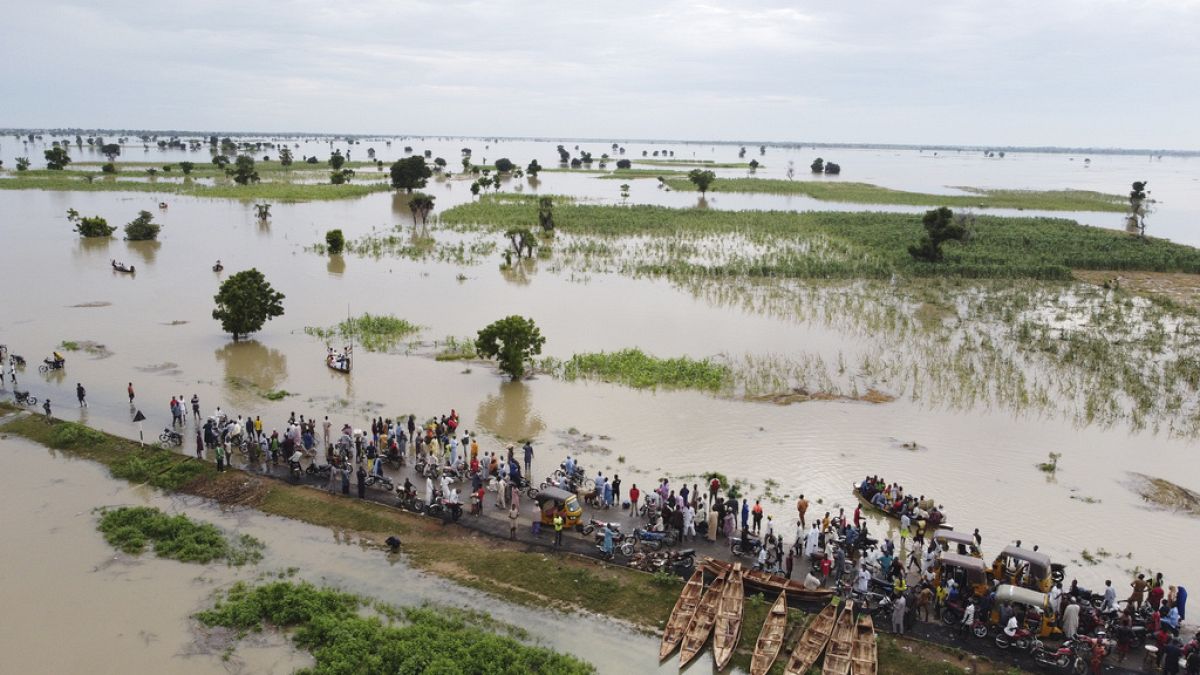The recent torrential rains in Maiduguri and the Jere Local Government Area have led to severe flooding, causing widespread devastation in the region. The United Nations High Commissioner for Refugees in Nigeria has labeled this event as the worst flooding in decades, highlighting the urgent need for assistance and support for affected communities. The impact of the floods is expected to be long-lasting, with many residents facing displacement and loss of homes and livelihoods. The severity of the situation underscores the importance of immediate relief efforts to address the immediate needs of those affected.
The flooding in Maiduguri and the Jere Local Government Area has resulted in significant damage to infrastructure, homes, and livelihoods. Many residents have been forced to flee their homes and seek shelter in overcrowded displacement camps. The lack of access to clean water, food, and medical supplies further exacerbates the challenges faced by those affected by the floods. The situation is dire, requiring swift and coordinated action to provide relief and support to the impacted communities.
The United Nations High Commissioner for Refugees in Nigeria has called for urgent assistance to address the needs of those affected by the flooding. The agency is working closely with local authorities and humanitarian partners to provide emergency shelter, food, and medical assistance to those in need. The floods have underscored the vulnerability of displaced populations in the region and the urgent need for increased support and resources to address their needs.
In response to the flooding, local authorities and humanitarian organizations are working together to provide emergency assistance to those affected. Efforts are underway to evacuate residents from flooded areas, provide temporary shelter, and distribute essential supplies such as food, water, and medical supplies. The coordination of relief efforts is crucial to ensuring that those impacted by the floods receive the support they need to recover and rebuild their lives.
The long-term impact of the flooding in Maiduguri and the Jere Local Government Area is expected to be significant, with many residents facing the prospect of rebuilding their homes and livelihoods from scratch. The floods have exposed the vulnerabilities of the region’s infrastructure and the need for better preparedness and resilience measures to mitigate the impact of future disasters. It is imperative that local authorities, humanitarian organizations, and the international community work together to address the root causes of vulnerability and build more resilient communities in the face of climate-related disasters.
As the floodwaters recede and the extent of the damage becomes clearer, the focus shifts to recovery and rebuilding efforts in Maiduguri and the Jere Local Government Area. The road to recovery will be long and challenging, requiring sustained support and commitment from all stakeholders involved. It is essential that the needs of those affected by the flooding are prioritized in the recovery process, ensuring that they receive the necessary assistance to rebuild their lives and communities. The recent flooding in Maiduguri and the Jere Local Government Area serves as a stark reminder of the urgent need for greater investment in disaster preparedness and response to protect vulnerable populations from the devastating impact of natural disasters.











